What Makes a Book A YA Novel? A discussion of what YA is, and what it isn’t
Trigger Warning: Sexual Violence is Discussed
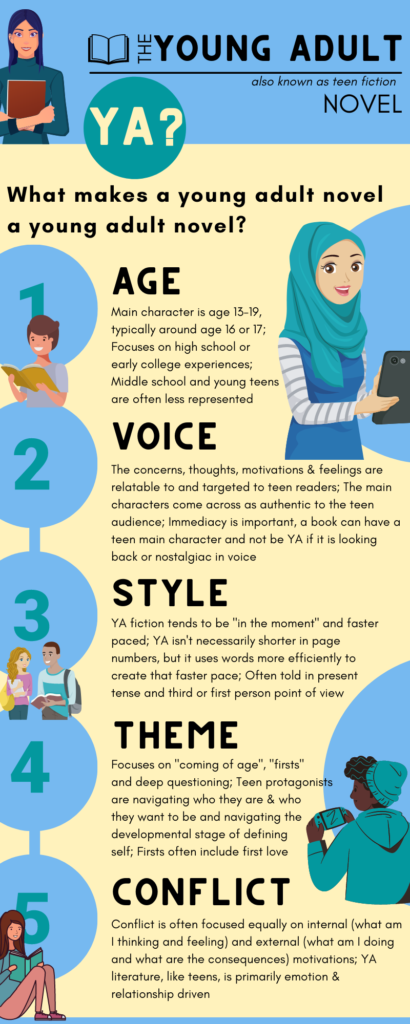
One of the questions I am asked to answer most often is this: what makes a YA book a YA book? How do you know a book is young adult?
I have been answering this question for almost 30 years now. Today, I have put together my standard answers to this question in an infographic. This is information I have shared in the past training new staff. It’s a collection of the thoughts and ideas I have heard shared over and over again in answer to this question.
ADVERTISEMENT
ADVERTISEMENT
On the surface, the most basic answer is this: a book is a YA novel if the main character is a teenager. But that is not always true, because sometimes a book has a teen protagonist or two and it is still technically an adult novel. This is particularly true if the novel has several main characters and only one or two are teens. This can also be true if the book is more nostalgic in tone or purpose, as opposed to telling a story that a teen reading in the current times would relate to. If the main voice is an adult looking back on the teenage years with the insight and wisdom of an adult, it’s probably an adult novel. For more on this, check out this post on the 3 key differences between YA fiction and adult fiction: https://writersedit.com/fiction-writing/3-key-differences-between-ya-fiction-and-adult-fiction/
It is true, however, that there is an ongoing shift in what is being defined as YA and it seems harder and harder to find YA novels that cover the younger end of the teen spectrum, with fewer books talking about the lives of 13 and 14 year olds in particular. Since most middle grade is targeted towards ages 8-12, this leaves young teens kind of in a reading desert. That is, perhaps, one of the reasons why things like The Babysitter’s Club on Netflix (sadly recently cancelled) and the new Turning Red movie from Disney is seen as so important and valuable: it’s hard to find 13-year-old girls in our media. As the mother of a current 13-year-old girl, I am thankful every time there is a piece of media that I can share with my daughter that she relates to. She was crushed to hear The Babysitter’s Club, a show she watches on repeat, was being cancelled. So although YA lit is for teens, it definitely currently skews towards older teens.
In addition to the age of the main character in a YA novel, the voice matters as well. If you are raising or spend a lot of time with teens, you know that they think, speak and act differently than adults, and these differences matter. It’s not just about slang and lingo, and each new generation has their own, but it has to do with brain development and the lenses through which they view the world. Generally speaking, teens are more emotion driven and focused on the here and now. In particular, teens tend not to think about the long term consequences of their actions. When adults ask “what were those teens even thinking” it’s because teens quite literally think differently than adults. This difference matters a lot when you are writing for a teen audience. Brain science shows us that how and why teens make the decisions they do is because they are literally using a different part of their brain and certain parts of the brain don’t reach maturity up until 24 or 25 years of age. Teens don’t act like adults because they are not adults. There are lots of great resources out there about the teen brain, I highly recommend reading more about it because it matters. And if you are an adult reading a YA novel and think the decisions these teens are making don’t even make sense, it might be because you are reading it through an adult lens.
The primary theme of the YA novel is almost always who am I and who do I want to be. That’s because developing ones own sense of self and identity is one of the primary tasks of adolescent development. Teens are doing the push and pull of independence from parents and adults and gravitating towards peer groups as part of the delicate dance of establishing a firm sense of self. For many adults this is the hardest part of parenting, allowing your teen to become their authentic self. This is why, outside of the sex and drugs, one of the most common complaints you will hear about teen media is that they defied their parents or that it encourages teens to defy their parents. At one point or another, most teens will defy their parents in little or big ways as they search to figure out who they are. And yes, as a parent, I can assure you that this is a difficult thing. It’s also one of the reasons why I love books; I would much rather my kid read about things in books and learn from the experiences of others than have them do some of these things on their own and learn the hard way.
There are things that some adults think should not be included in YA novel, including sex, drinking or drug use. The reason that these are included in YA novels is this: many teens do in fact drink, do drugs or have sex. In fact, the average age of a person’s first sexual encounter is 17. On average, 55% of teens have their first sexual experience before the age of 18. Discussions of and navigating the topic of sex is a pretty big deal in the teen years, so it comes up in YA literature. While some parents may feel uncomfortable with this topic, many others are thankful to have meaningful literature that helps their teens think about their sexual feelings and both the short and long term impacts of sex in the life of teens. So sexual content does not automatically make a book an adult book.
ADVERTISEMENT
ADVERTISEMENT
I’ve been thinking a lot about this question as we navigate an era of extreme book banning. There are a lot of things about the teen years that are hard for adults. Adolescence is literally about becoming your own person and entering into adulthood. And YA novels are about teens doing just that. It can be a messy, emotional, and difficult process. So many teens will make both little and big mistakes along the way. How many of us who have successfully made it to adulthood can say we have no regrets about the choices we made or things we did as teenagers? In fact, one of the reasons I knew I wanted to be both a youth minister and later a teen librarian is that I knew that I wanted to help teens navigate what were, to me, the most difficult years of my life. I wanted to support teens in a way that I felt society wasn’t supporting me growing up. Books helped me and I believe that books continue to help today’s teens.

The first time my now adult daughter read a YA book, it was a book that contained a rape scene. She was around 13 and she was sitting in the passenger seat of the car as I drove us to who knows where. She looked at me and said, “Mom, I think this boy is raping this girl, do I have to keep reading this?” To which I replied, “you never have to keep reading a book you don’t like or makes you uncomfortable.” But she kept reading. I asked her why she thought it was about rape and she read me a few paragraphs and I said, “yes, you are correct, that would be rape.” And then we proceeded to have some of the most important conversations about healthy relationships, dating, and consent. YA novels helped us have a lot of meaningful conversations about who she was, what she was experiencing and feeling, and how she wanted the world to be. I was thankful to have books that helped us have conversations that it didn’t occur to me to have with her.
I know that not every parent feels the same way I do about the content in YA novels. And as both a librarian and a parent, I respect that. What I don’t respect is people trying to take those important moments away from me and mine by banning books. Yes, even in a school library. She found books in the school library that she would never have found elsewhere and we had conversations that we would never have had without those books. Those books and those conversations helped make her who she is today, and I honestly seriously love who she is today.
So when people ask me what makes a book a YA novel, I answer with the talking points above that I have collected over the years. But when they ask me if a book is appropriate for teens, that’s a different question, because it depends on the teen. Not every book is the right book for every teen, and that’s okay; that’s why we need a lot of them and a wide diversity of them. That’s also why we need qualified and engaged librarians to help teen readers find the right books for them.
Additional Reading:
https://www.theatlantic.com/culture/archive/2012/04/what-does-young-adult-mean/329105/
Filed under: YA Lit
About Karen Jensen, MLS
Karen Jensen has been a Teen Services Librarian for almost 30 years. She created TLT in 2011 and is the co-editor of The Whole Library Handbook: Teen Services with Heather Booth (ALA Editions, 2014).
ADVERTISEMENT
ADVERTISEMENT
SLJ Blog Network
One Star Review, Guess Who? (#202)
Review of the Day: My Antarctica by G. Neri, ill. Corban Wilkin
Exclusive: Giant Magical Otters Invade New Hex Vet Graphic Novel | News
Parsing Religion in Public Schools
ADVERTISEMENT



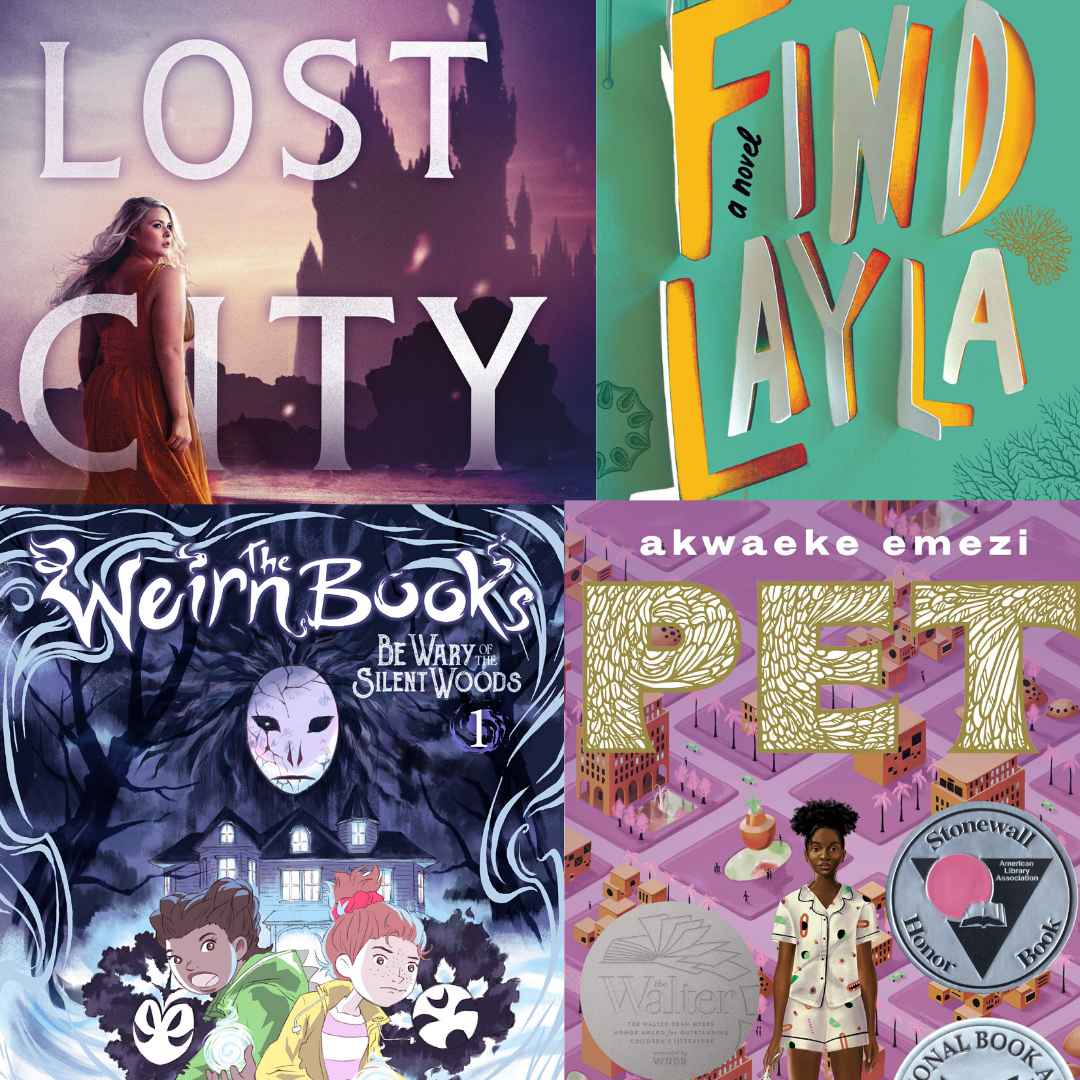
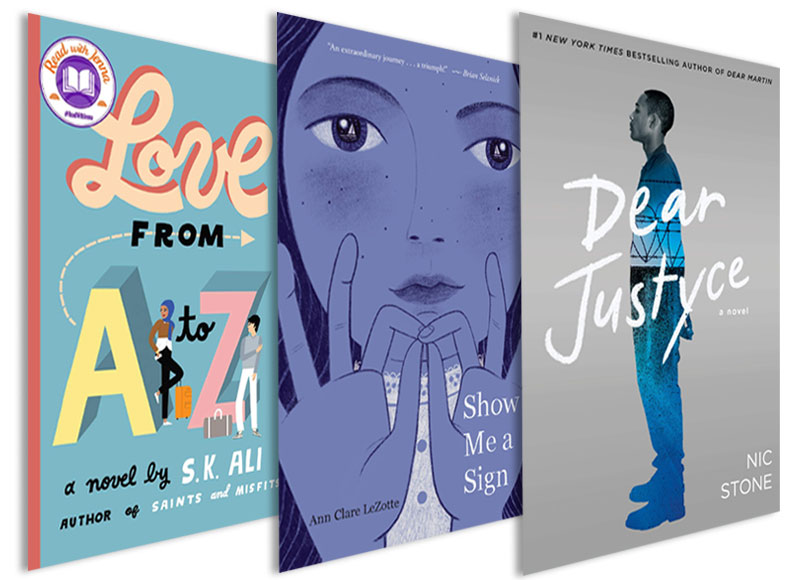
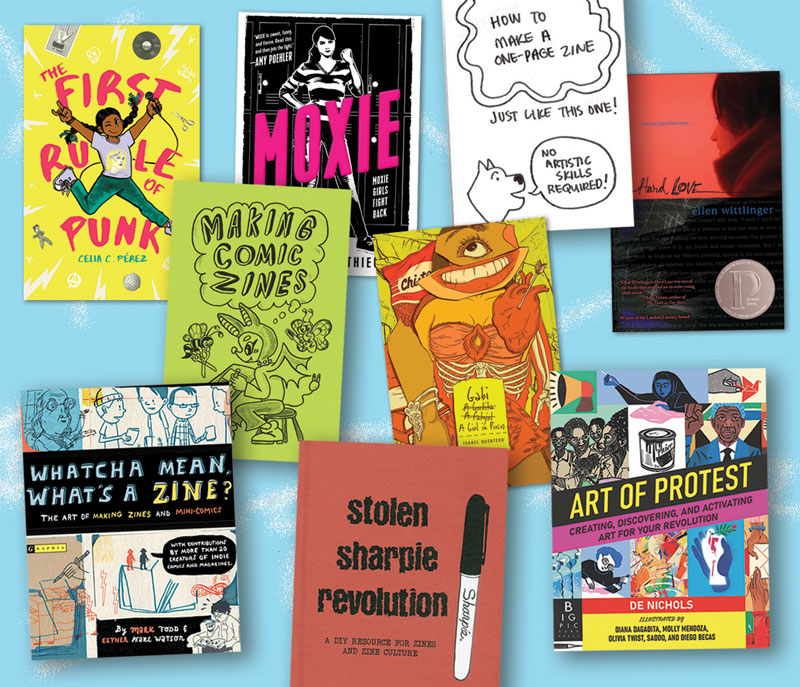
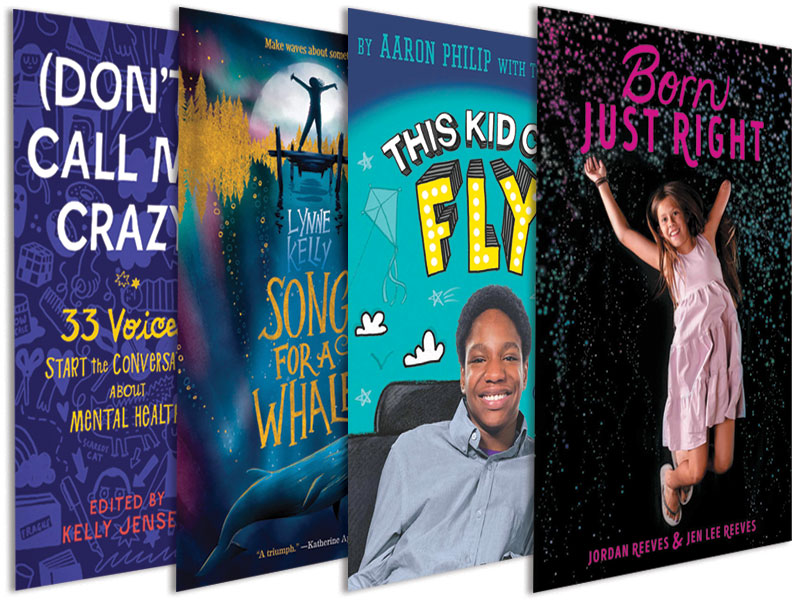
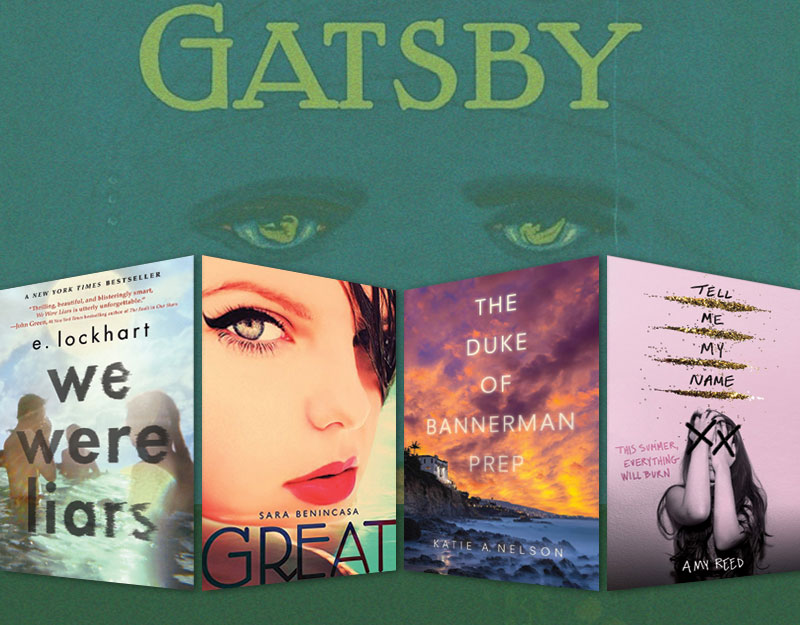
I appreciate this article and all the points you made.
They are valuable and true!
You are 100% correct.
There is also the history factor. I can’t remember if my kids (now 29 and 30) were in 8th grade or 9th grade when they came home with “Blood Done Sign My Name” by Timothy Tyson. I did not know the book which is a YA book because it tells of Mr. Tyson’s experiencing the Wilmington, NC Race Riots as a young teen. Since I grew up in Europe, I had never heard about the Wilmington Race Riots.
After I first criticized the choice (mainly because of its title, because I did not know the book’s plot) I read it too, and found it to be an eye-opening and extremely well written book.
Years later, I found out that many politicians (and others) don’t like to mention the Tulsa and the Wilmington race riots, that the topic is often “swept under the rug.”
But I believe that young people need to learn about them so they can become the positive change our society needs.
I was very grateful to the teacher and school librarian for selecting this book